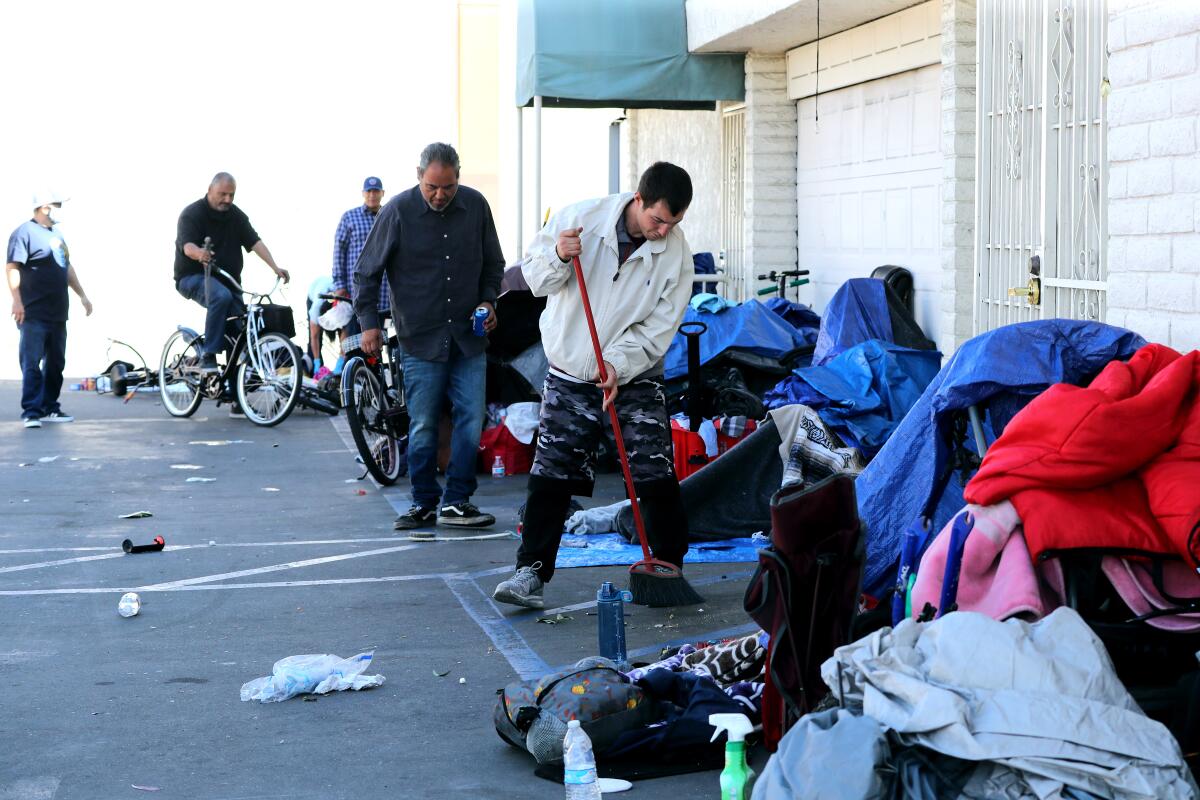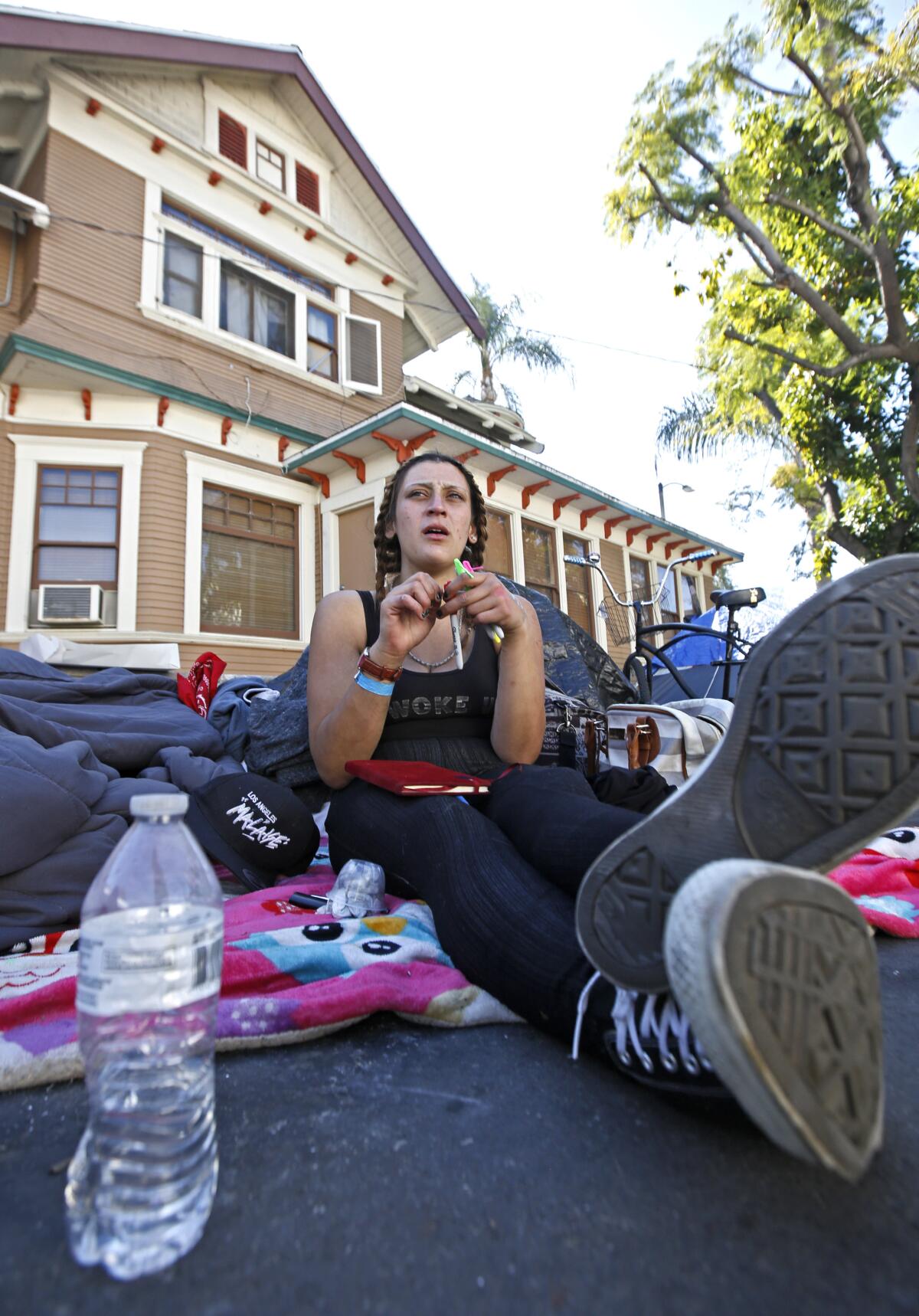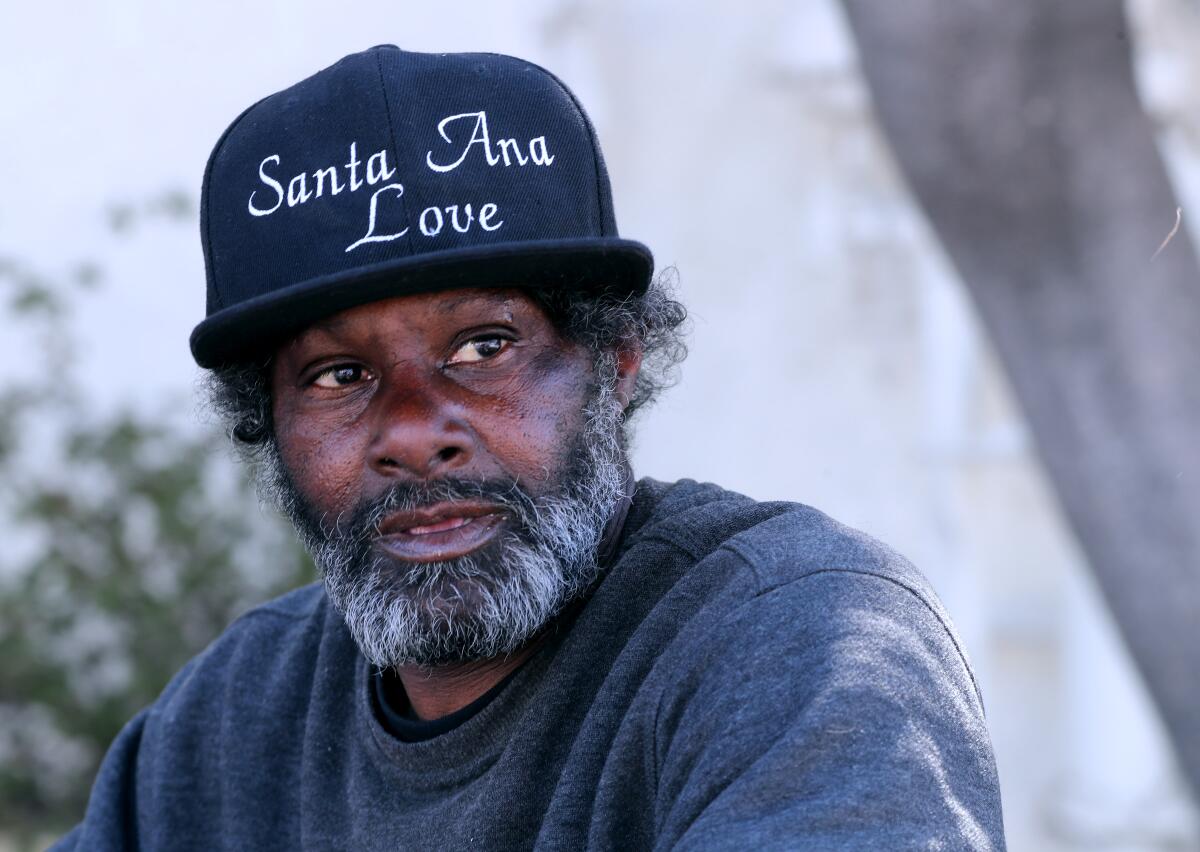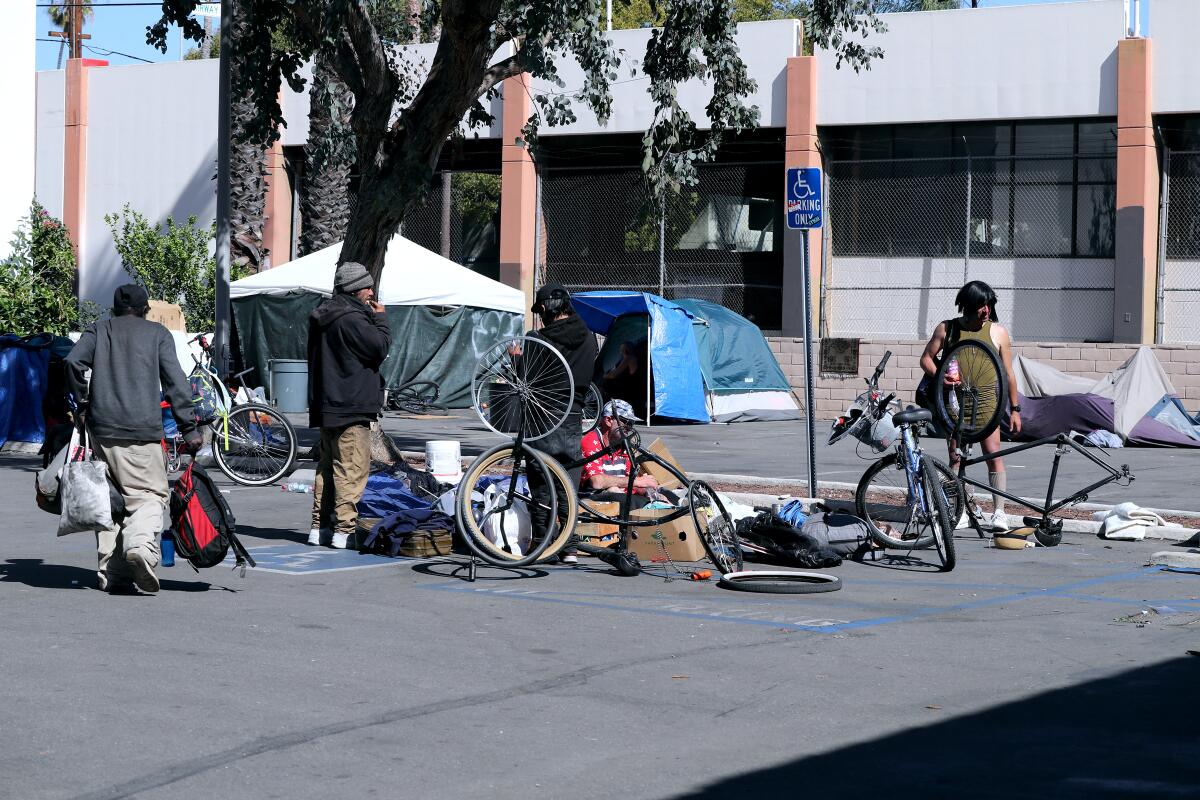Mexican cultural center faces off with city of Santa Ana over homeless encampment

- Share via
A Mexican cultural center in Santa Ana is butting heads with the city over a homeless encampment in its parking lots.
Established by a group of migrant women more than two decades ago, El Centro Cultural de México at 837 N. Ross St. is a linchpin for the local Latino community.
But since the beginning of the COVID-19 pandemic, homeless people have been living in the cultural center’s parking lots. The numbers have steadily grown to an encampment with more than 40 people.
Though the encampment has put a dent in the small cultural center’s already ailing finances, El Centro is working to help the homeless.
But the cultural center has had to contend with the city, which has been fining El Centro for not keeping the area clean.

Ben Vazquez, who sits on the cultural center’s board of directors, said the city wants the homeless people out of the area. Vazquez said he would rather help the homeless people find housing than “kick the can down the road.”
“They’re hoping to make the problem disappear, but [the homeless people] are going to end up somewhere,” Vazquez said. “And right now they’re at Centro and pushing them out of Centro doesn’t mean they’re going to disappear.”
Vazquez said the city has fined El Centro for more than $1,800 so far.
He also said police come by the parking lot and throw away people’s belongings.
“The city ... is aware of the homeless encampment situation at the Centro Cultural de Mexico,” city spokesman Paul Eakins said in an emailed statement. “The encampment is on private property, so the city is seeking to resolve the issue through our Code Enforcement Division. If the property owner does not address the problem, the next step for the city could be to seek an abatement warrant.”

Vazquez said El Centro is partnering with other nonprofits and hopes to connect the homeless with housing and other support services.
“The city wants us to let them come and give them tickets, harass them or criminalize them,” he said. “We won’t do that. We need to get them into places, get them services and make sure we don’t criminalize the homeless and treat them like human beings. We decided as a group we didn’t want to criminalize them.”
The center has not had an easy time since the beginning of the pandemic. Like other nonprofits, the cultural center has taken a financial hit.
The homeless encampment has made it harder for the center to find a renter for the top floor of its building, a source of funding for the center, Vazquez said. The center has also reduced rent for its other tenants.
Before the pandemic, the center provided a link to important cultural customs for the Latino community. Community members could learn traditional Mexican instruments, take dance classes and attend community meetings, art shows and exhibitions. The center has had to scale down and hasn’t been able to put on its usual festivities.
Despite the struggles, El Centro is helping the undocumented community by providing COVID-19 relief. Vazquez said the center has used about $500,000 of COVID-19 relief funds for food giveaways, rent relief and other support services.
“Thank God for this place,” said Alex Beltran, who said he has been living at El Centro for about three months.
Beltran, who said he has been homeless for about 20 years, praised the center for providing him with needed support.
Beltran’s daughter, Victoriyah Ewing, is also living in the parking lot.

Ewing said she has been homeless for about four years. She was forced out of foster care when she turned 18 but became homeless after she didn’t qualify for transitional housing.
“Not a lot of people would just let us camp out here,” Ewing said. “They help us.... They don’t have to do this.”
Nathan Muiars, who also lives in the parking lot, echoed that sentiment.
“They have been very helpful,” he said. “Most places would usually just call the police.”
Brazil writes for Times Community News.
More to Read
Sign up for Essential California
The most important California stories and recommendations in your inbox every morning.
You may occasionally receive promotional content from the Los Angeles Times.














